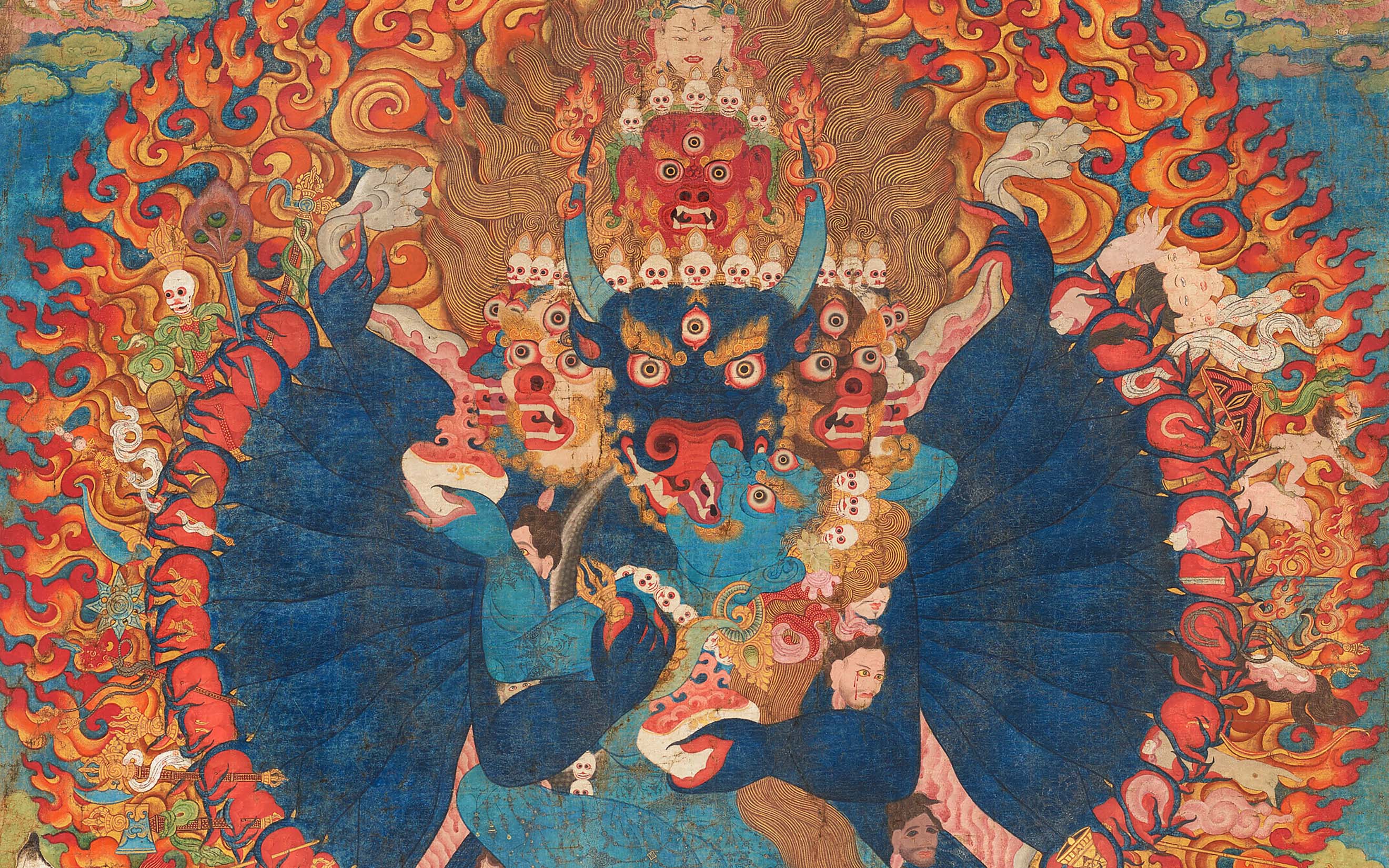Temple excursions have recently become a trendy weekend activity among Chinese youth looking to find spiritual solace and a brief respite from their intense academic and work-dominated lives.
According to Trip.com Group, China’s largest travel planning platform, bookings for temple visits and excursions have grown by 310% since the fall of 2022. The main demographic behind this recent spike in interest is Millennials and Gen Zers, also known as the ‘post-’90s’ and ‘post-’00s’ groups in China, who account for more than half of bookings.
Young Chinese workers’ growing awareness of work-life balance has been a hot topic of discussion in the past few years with the rise in trends like ‘lying flat’ and ‘let it rot,’ which refer to cynical views of one’s employment situation due to China’s increasingly demanding work culture. Many see the rising number of temple visits as part of a growing rebellion against the rat race, but some argue that it’s simply another trendy photo op.
Off to the Temples
China is home to approximately 185-200 million people who identify as Buddhist, making up about half of the Buddhist population globally. There are almost 28,000 Buddhist temples nationwide, and most are open to visitors.
According to a Pew Research Center study, Buddhism is practiced more by older people. In China, visiting temples and burning incense are also activities associated with older generations. However, things have started to change in recent years as more young people choose temples over nightclubs.
Instead of drinking or going to brunch, some young adults are using their weekends to travel to the outskirts of cities, meditating and burning incense inside Buddhist temples.

The sudden viral phenomenon has generated much discussion on Weibo, China’s top microblogging platform. The hashtag ‘Why are temple retreats so popular all of a sudden’ (#为什么寺庙旅游突然火了#) has garnered more than 110 million views at the time of writing.
A Life Attitude and Fashion Statement
Many on Weibo, China’s top microblogging site, said that a few days at the temple could reset their minds and help them relax, calling it an escape from their hectic work and school lives.
Another wrote, “You can’t win by hard work, and you can’t win by lying flat. Sometimes I even get criticized online for minding my own business. Might as well go practice Buddhism.”
Perhaps predictably, the popularity of temples can be partially attributed to their aesthetic appeal.
A simple search for the word ‘temple’ on Xiaohongshu yields many posts of young people posting photos from their excursions, with subjects posed as if they’re praying or walking around wistfully.

The popularity of these posts could also be tied to the re-emergence of Chinese elements in fashion and style through trends like the hanfu revival and Guochao, where young people embrace their cultural heritage by reconnecting with their roots.
With this in mind, aestheticizing and romanticizing these temples could be considered a form of national pride for young Chinese people.
Monetizing Spirituality
Despite the Buddhist philosophy of detaching oneself from worldly desires, many young people tend to engage in increasingly consumerist behaviors to make the best of their time at a temple.
For example, items like beaded bracelets, which people buy for good luck, are often sold out before the day ends. The high demand has even spawned resale markets. People are also making direct donations to temples, hoping their prayers will be answered faster.

Some temples also offer retreats that simulate “a monk’s life.” For the price of 500 RMB (71 USD) per night, participants at Tongxuan Temple in Taizhou, a coastal city south of Shanghai, can take over some of the light tasks that monks do daily, such as waking up at 5 AM to feed the site’s various pets and changing the water in incense holders.

Some worry that this sudden temple craze will lead to over-commercialization and corruption of these religious institutions.
“Temples will lose meaning if they’re over-commercialized. The purpose of religion is to teach people to be kind. If you don’t follow that, it doesn’t matter how much money you throw at it,” one wrote on Weibo.
Criticisms
Reactions to this viral trend haven’t been all Zen: There have been criticisms aimed at young people, accusing them of abandoning their societal duties and evading responsibility in real life.
An article published by the state-run newspaper Beijing News titled ‘Cutting class, lack of motivation, just burning incense’ critiqued young people for relying on the gods to improve their lives instead of putting in the hard work that could improve their lives.
The author Liu Zao wrote, “Praying to gods and Buddhas is unreliable […] the real key to changing your destiny is yourself.”
This type of reaction is perhaps born out of growing resentment towards more young people opting out of the nation’s grueling work culture and not abiding by the societal expectations in China.
The growing interest in Buddhist temples is reminiscent of another trend from the past — a ‘Buddha-like mindset.’ Characterized by young adults accepting life for what it is instead of chasing what it could be, many consider it a predecessor to the ‘lying flat’ movement.
Sometimes getting out of the rat race is a blessing in disguise. Those who are fired can develop #佛系, a Buddha-like mindset, living life how they want without anger or frustration. pic.twitter.com/f0saJUF5xk
— RADII (@RADII_Media) June 24, 2021
The term gained popularity in 2017 and similarly incited criticism with claims that the Buddha-like mindset trend is making youth “fatalistic” and lazy.
However, like before, young people are standing up for themselves online and responding to the criticism made by people already in power.
“Instead of working until the early morning hours and drinking until I vomit, I choose to find some spiritual comfort in going to temples. What’s wrong with that?” one wrote on Weibo.
Cover image courtesy of Matthew Bossons


















